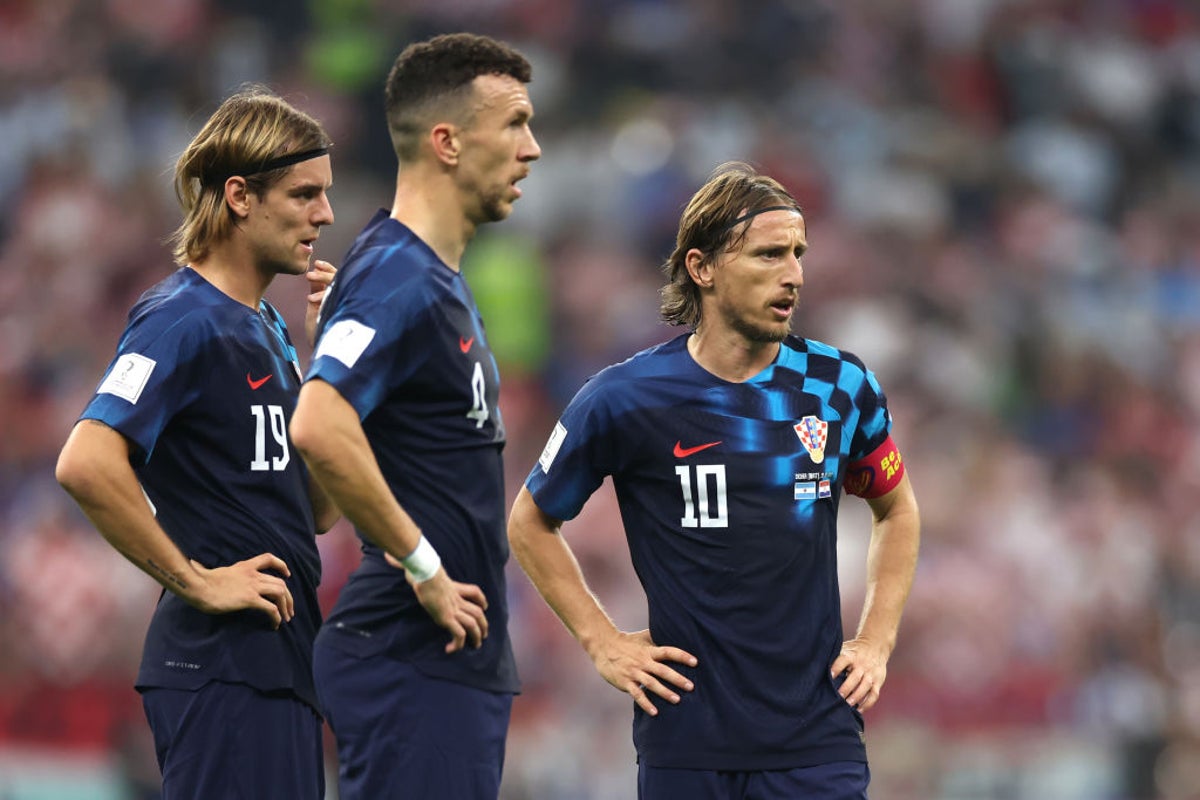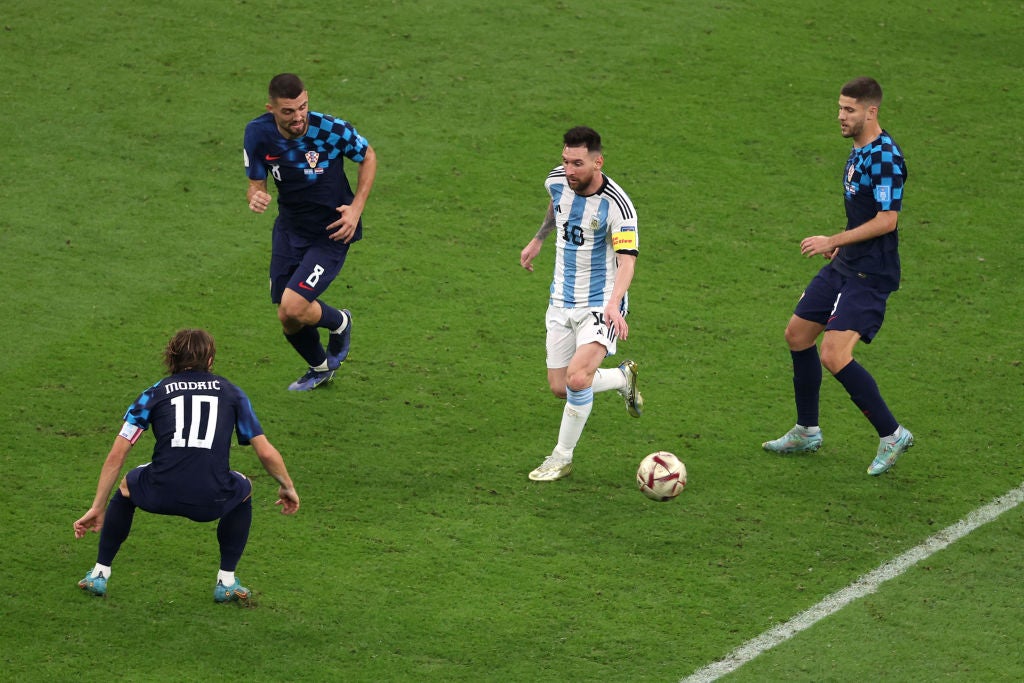
Take possession, take control. That has been the maxim that Croatian football has lived by, nine-tenths of the law that this improbably golden generation of players has built their unlikely success upon. But more like six-tenths, to be precise. This is a percentage game, you see, and quite literally so. If Luka Modric, Marcelo Brozovic and Mateo Kovacic have and hold the ball 60 per cent of the time or more, their opponents can only pick at and pierce through their teammates 40 per cent of the time or less.
It is a fair calculation, one that produces moments of truly masterful midfield play between a Croatian triumvirate that are arguably the best practitioners of possession play since Barcelona’s class of 2011. They find the points, lines and angles to keep what they believe is rightfully theirs, almost playing a game of their own to themselves. “When you pass them the ball it is safer than having your money in the bank,” says left-back Borna Sosa. It was a nice metaphor. But every so often, a bank goes bust.
Aesthetically pleasing it may be, but the mistake that an over-commitment to this approach makes is believing that possession equals control, when in fact it can only ever offer a close approximation. There are other percentage plays to make, other bets to take, ones that have a higher upside if they come off.
And crucially, there is a difference between having the ball and controlling a game. It is in those margins that such games against sides like Croatia are won and lost.
On their way to this World Cup 2022 semi-final, they fell on the right side of them. The nature of tournament football dictates that any team to reach this late stage has a slice of fortune along the way but Zlatko Dalic and his players have scoffed most of the cake. Even before the penalty shoot-out victories over Japan and Brazil in this knockout stage, there was Romelu Lukaku’s catalogue of misses as Belgium’s own golden generation crashed out. Had he scored any one of them, Croatia would have instead left early.
Much of their journey to this point has come through not luck but skill. Dominik Livakovic was not simply guessing when he saved four penalties across those two shootouts, nor did he have his eyes closed when repelling Brazil over and over again in normal time. The attention heaped on Josko Gvardiol is deserved, as is his status as European football’s most coveted young centre-half. The Modric-Brozovic-Kovacic axis has done what it does, just as well as it did on the way to their runners-up finish in 2018.
And yet, for all that supposed control, there was still a pervading sense they were hanging onto their place at these finals by the fingertips. With this 3-0 defeat to Argentina which eliminated their hopes of reaching a scarcely believable second successive final, any grip they had finally loosened, any control was finally surrendered.
Even for the half-hour or so that this semi-final was still goalless, when Croatia were comfortably moving the ball through their defence and midfield, Argentina were equally comfortable allowing them to do so.
And when Argentina’s telling blows came, they were the antithesis of the Croatian school. Quick balls through the middle and over the top, piercing an unprepared defence. Both went through Julian Alvarez. Neither were particularly pretty - the first forcing Livakovic into a clumsy foul for an obvious penalty, the second bouncing off Josip Juranovic, then Sosa, yet still running kindly for Alvarez to finish.
Croatia had been down the other end before that second, working a short corner, building pressure through use of the ball. They were in control, then suddenly, emphatically, they were not.
Now, they are out. Once Saturday’s third-place playoff is done with, this is a side who will leave Qatar having been in front for just 46 minutes during their meaningful matches.

The last time they won a knockout game in 90 minutes was at the 1998 World Cup. Excluding penalty shootouts, they have won just one of their last 10 matches since the end of the group stages four years ago.
There is another statistic which requires its obligatory mention: Croatia, if you hadn’t heard, has a population of just 3.9 million. It has been said plenty of times before but it bears repeating: they are a remarkable football nation, one that would not normally be as successful as they are. And so with all those odds against them, it makes sense to keep at least one of the percentages in your favour.
They came away from this semi-final with a 59 per cent share of the ball - a shade below the sixth-tenths you might define as domination but still plenty for a side that believes the ball is everything. They have often been proved right in that, yet for once, it was not enough.







